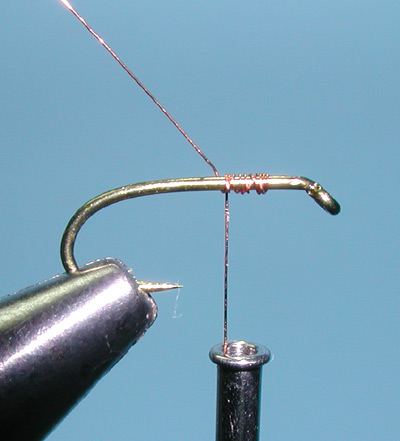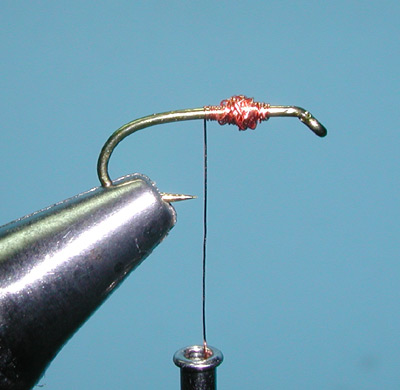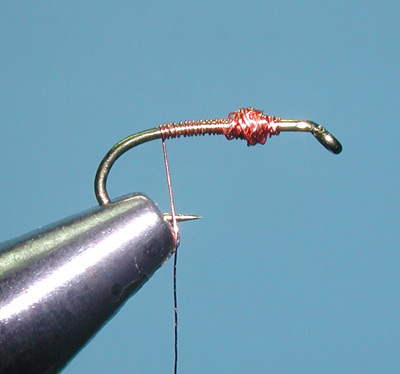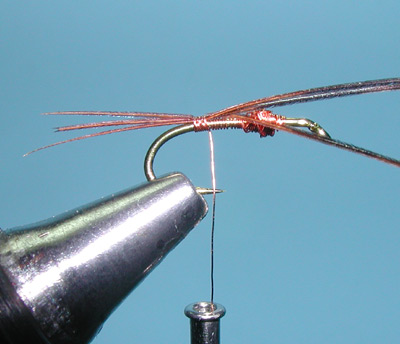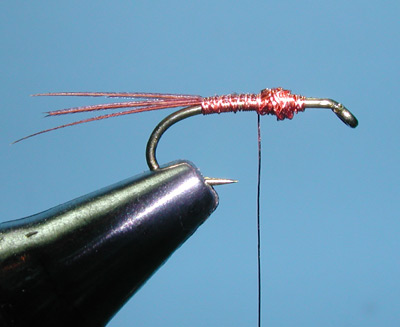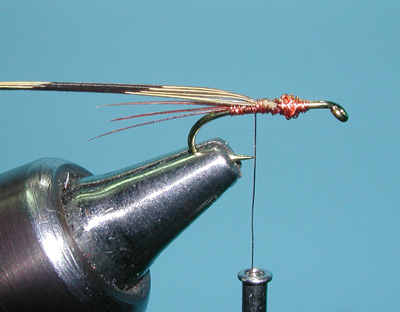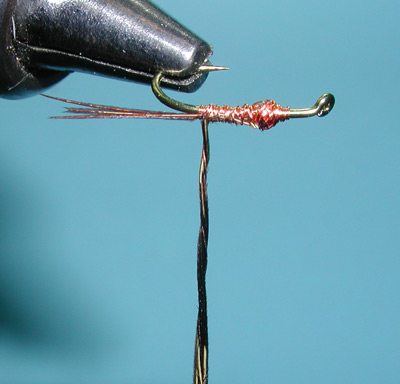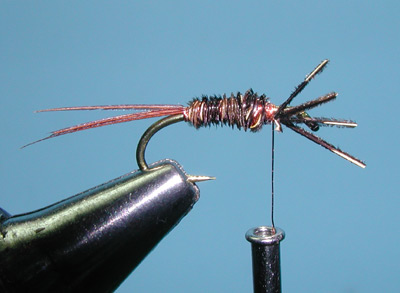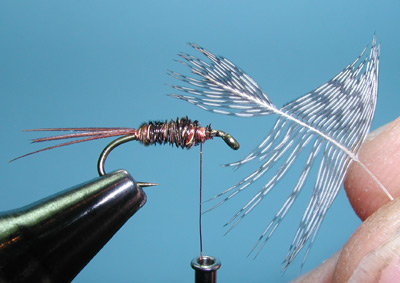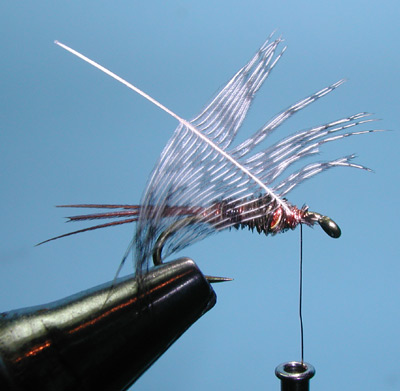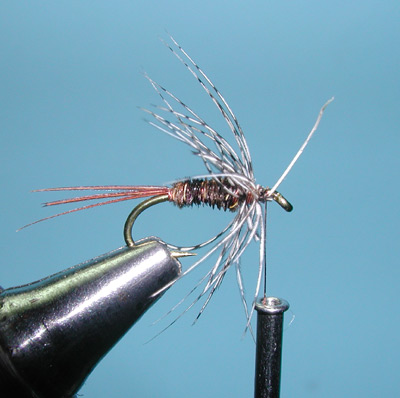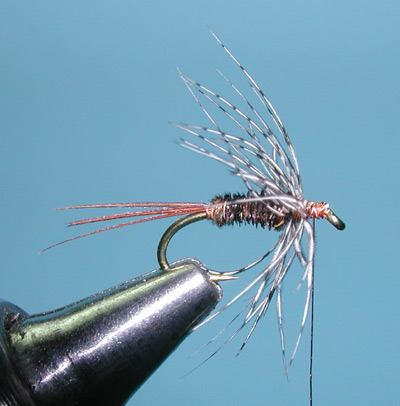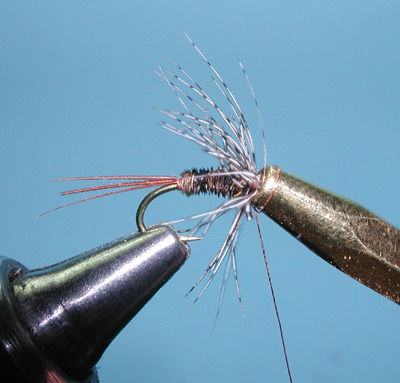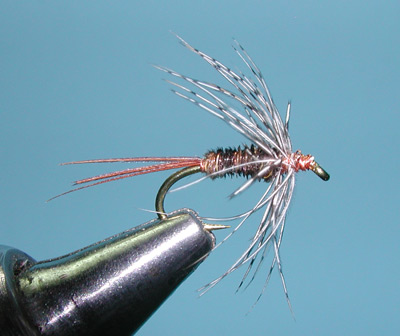Pheasant Tail & Partridge Soft Hackle – admiration of the one fly
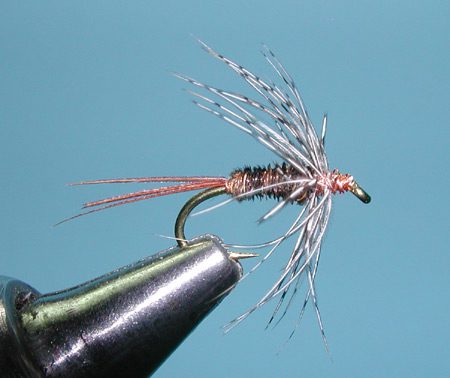
Pheasant Tail & Partridge Soft Hackle
Tying Instructions
| Materials
to Order Material, click the link |
|
|---|---|
| Hook | TMC 3769 #12-18 |
| Thread | Small Copper Wire |
| Body | 4-5 fibers Pheasant Tail |
| Tail | 2-3 fibers Pheasant Tail |
| Hackle | Gray Hungarian Partridge |
Pheasant Tail & Partridge Soft Hackle
The Pheasant Tail & Partridge Soft Hackle probably has it’s roots during the time of Dame Juliana Berners in 1496 when she wrote a treatise describing the only fly pattern used within England at that time, a wet fly. Nymph patterns came about in the mid 1800’s in England and Frank Sawyer, the riverkeeper of the Avon river in southern England, has been attributed as the developer of the the modern Pheasant Tail Nymph (PTN) in the early 1900’s.
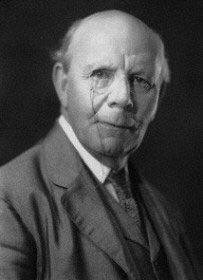
George Skues
Some years before Frank Sawyer tied up his PTN, another English flyfisherman,George Skues, was already tying a version of the Pheasant Tail Soft Hackle. These English patterns utilized Pheasant Tail for both the thorax and the body. The Soft Hackles fell out of favor with the writings of F.M. Halford in the 1880’s proclaiming the superior performance of dry flies by matching the hatching insects on the water with a fly of similar color and size.
Soft Hackle Reemergence
As a result, many of the chalkstreams of England became “dry fly only” and you could only fish to a rising trout. The preference for dry flies continued into the United States with the writings of Theodore Gordon in 1890, who was known as “The Halford of the USA”. Gordon received a number of dry flies from Halford and created his own that were suited to our streams, the Gordon and the Quill Gordon. It wasn’t until the 1970’s that the Soft Hackles, as touted by Sylvester Nemes, became an important pattern for many of today’s fly fishermen. Today, the Soft Hackle is recognized as an excellent fly pattern, particularly within riffles and runs of less than 4 feet in depth. It is primarily used with a downstream cast utilizing the currents for movement.
Hungarian Partridge
The Pheasant Tail Soft Hackle can be tied with or without a tail. With the tail, the pattern represents Baetis in the smaller sizes or small stoneflies in the larger sizes. With or without the tail, the beautiful fibers of the Hungarian Partridge in the front makes a good representation of an emerging Caddis. Other trigger factors are the flash of the copper wire, and the undulating effect of the Partridge fibers.
Presentation
The pattern can be fished on tailwater and freestone rivers. Often, it is fished in the late spring and summer when the mayflies are most active, tied in sizes #12-18 in order to imitate all types of mayflies. The Pheasant Tail Soft Hackle is a great fly when the mayflies are emerging or actively free floating in the current. When a mayfly nymph is in the current, it spreads it’s legs out wide and floats helplessly. This is where the soft hackle on the Pheasant Tail comes into play. When the pheasant tail is wrapped around the hook, the fibers stand up, thus giving it the appearance of having the gills on the body.
One Fly
A variation of this pattern is the one fly preferred by Yvon Chouinard, founder of Patagonia. Yvon has caught both trout and warmwater species with this pattern. He has even caught Bonefish with a larger variation. It is his primary pattern used with his Tenkara rod. “If I was to use only one fly for trout fishing for the rest of my life, it would be a ‘partridge and pheasant-tail’ soft hackle,” said Mr. Chouinard, specifying a size 14. “It’s an all-purpose fly,” he said. “You could probably go out with this one fly and out fish anybody.”
Variations
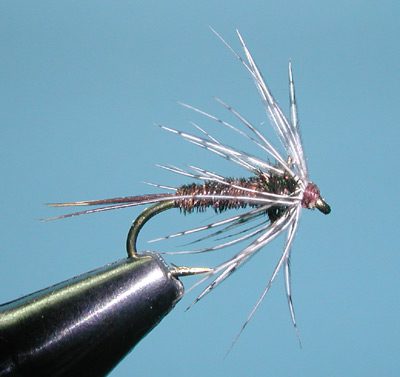
Pheasant Tail Soft Hackle
| Hook | Tiemco 5262 #12-18 |
| Thread | Uni-thread Dark Brown 8/0 |
| Body | 5-6 Pheasant Tail Fibers |
| Thorax | Peacock Herl |
| Tail | 3 Pheasant Tail Fibers |
| Ribbing | Small Copper Wire |
| Hackle | Gray Hungarian Partridge |
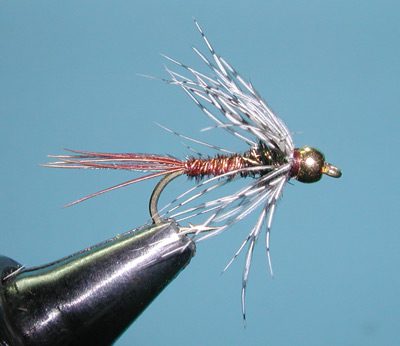
BH Pheasant Tail Soft Hackle
| Hook | Tiemco 5262 #12-18 |
| Thread | Uni-thread Dark Brown 8/0 |
| Bead | Gold Brass |
| Body | 5-6 Pheasant Tail Fibers |
| Thorax | Peacock Herl |
| Tail | 5-6 Pheasant Tail Fibers |
| Ribbing | Small Copper Wire |
| Hackle | Gray Hungarian Partridge |
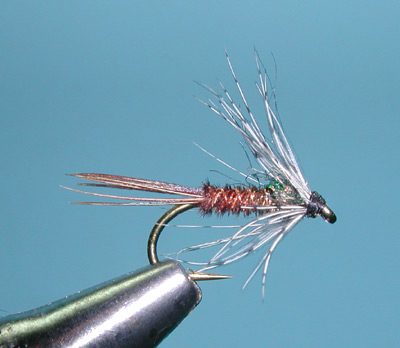
Yvon’s Soft Hackle Pheasant Tail
| Hook | Daiichi 1530 #12-20 |
| Thread | Uni-thread Black 8/0 |
| Body | 5-6 Pheasant Tail Fibers |
| Thorax | Peacock Ice Dubbing |
| Tail | 5-6 Pheasant Tail Fibers |
| Ribbing | Small Copper Wire |
| Hackle | Gray Hungarian Partridge |

